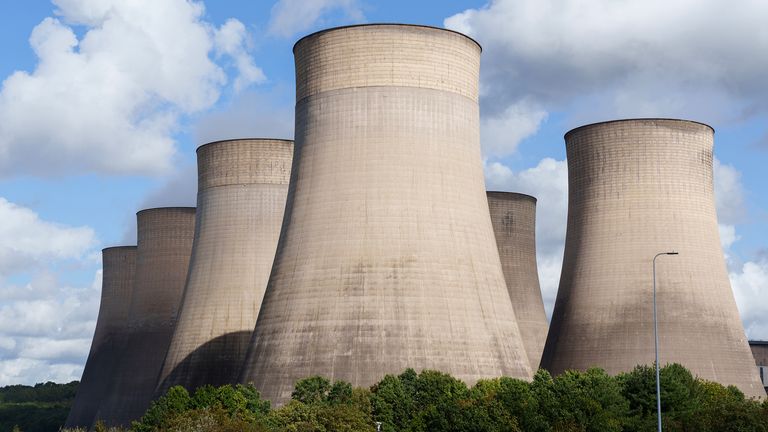It was a grim day for a send-off.
Rain poured down the giant cooling towers at Ratcliffe-on-Soar power plant in Nottinghamshire as the last wisps of steam floated away from them – the fading warmth of the furnaces shut down the night before bleeding into the low cloud above.
A slow end to the UK’s 142-year reliance on coal for electricity.
In a marquee below, former workers, power industry executives, civil servants and a government minister gathered to say thanks to the staff at the UK’s last coal-fired power plant.
Like any good wake, this was also a celebration of the 57-year-long life of the plant.
A life in which it provided power to most of the East Midlands.
The broadcast of the moon landings, the floodlights at Nottingham Forest’s City Ground and 6,821 episodes of EastEnders, all powered by electrons flowing from its turbines.
A cosy factoid from Uniper, the company that owns the plant: it generated enough power in its lifetime to have made two trillion cups of tea.
Away from the celebration, the mood in the control room was more sombre.
Some of the staff have worked at the plant since it was owned by the Central Electricity Generating Board.
The moment when they gave the instruction to stop generating the night before was, one of them told me, “very sad”.
After shutting the plant down, another of the team walked through the now quiet turbine hall to say their goodbyes.
They’ve known this moment was coming for a decade, ever since the government announced a phase-out of coal power by 2025.
That lead time has allowed their union and employer to protect the jobs of all 140 workers at the plant.
But there is now a far more ambitious – and necessary – goal to phase out all fossil fuels from our electricity grid by 2030.
Managing that rapid transition, while protecting the jobs of tens of thousands of workers still employed in fossil fuel industries in the UK, will be much harder.

